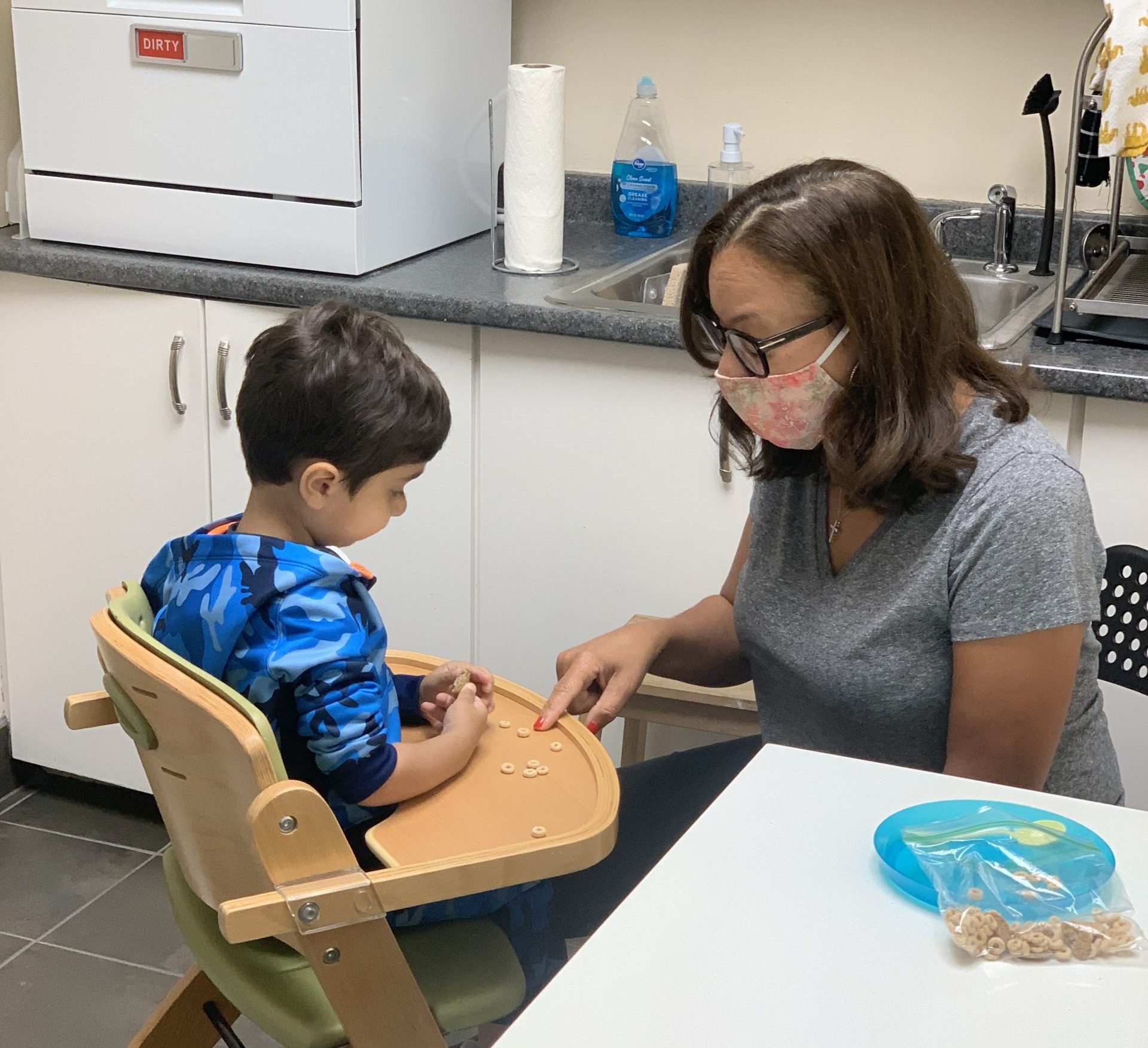




• Weak latch
• Disorganized suck
• Excessively long feeds
• Slow/poor weight gain
• Vomiting
• Coughing and choking
• Bottle aversions

• Gagging on or rejecting table foods
• Poor chewing
• Slow/poor weight gain
• Difficulty weaning from breast/bottle
• Coughing and choking
• Texture aversions

• Picky Eaters
• Restricted diet/ARFID
• Gagging
• Anxiety surrounding mealtimes
• Poor chewing
• Messy eating
• Texture aversions
• Poor weight gain
• Taking longer than 30-mintues to eat
• Coughing, choking, gagging
• Diet limited to a restricted number of foods
Prematurity
Structural differences (cleft lip/palate, tethered oral tissues, maxillofacial differences)
Difficulties with parent-child mealtime dynamics
Cardiac disease
Respiratory and airway conditions (tracheostomy)
Enteral feeding/transitioning to oral feeding

How the mouth processes taste, temperature and texture.
How the muscles in the mouth and movement patterns support chewing and swallowing.
The child’s attitude towards food and eating, and how the caregiver-child dynamic impacts mealtime success.

Your baby will be observed during a typical feeding (breast and/or bottle) and may be fed by both the clinician and the primary caregiver.

You and your child will be observed during a mealtime experience. Additionally, we will observe your child’s performance when presented with foods of various consistencies.

Treatment sessions are one-on-one with the feeding therapist, and last 25- to 50-minutes. We typically recommended 1- to 2-sessions per week.
Parents are encouraged to participate in treatment sessions (as your child tolerates) in order to learn how to promote new skills at home.
We work in tandem with other professionals, such as pediatricians, gastroenterologists, nutritionists, dentists, otolaryngologists, and mental health specialists to address the needs of the whole child.

Progress is assessed after each session, and success is measured by how well the child uses these new skills at home, and outside the clinic environment.